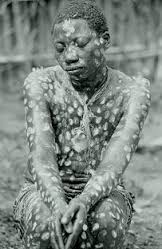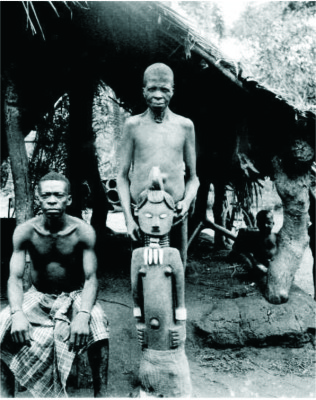The Igbo ethnic group, which occupied the eastern region of Nigeria, are well known for their multi-branched culture, traditions and religious beliefs which they believe to be very essential in their way of life. Among the countless traditions of the Igbo people is the Osu caste system in which a set of people were separated from the normal Igbo society because they were believed to be sacrifices to the gods of Igboland, these people are called Osu.
According to Igbo history, the forefathers of the Osu people pledged themselves and their descendants to forever remain a sacrifice to the gods due to their aura of consecration, therefore, they were treated by the normal Igbo society (Nwadiala) as outcasts and slaves. The Osu people were denied so many rights in Igboland, like the right to freedom, political activities, fair hearing, marriage and sometimes, life. The Osu Caste system in Igboland has been in practice since the early days of the Igbo people, and it is still being practiced in some places in the modern Nigeria of today like Abia, Imo, Delta and Edo.

This belief emanated from the superstitions fabricated by the ancestors of the Igbos. Such superstitions were also woven around albinos that they were evil and bearer of bad luck in the community.
Western education and Christianity brought by the white missionaries to Igboland lifted up the hopes of the Osu, but still, no matter how educated, rich or holy an osu could be, the Igbos believe an osu is still an osu and the discrimination continues. Civilization and democracy has made the tradition to dwindle or cease in some parts of Igboland. Several accounts have highlighted the marital life of the Osu people in Nigeria. It is a taboo for an osu to marry a Nwadiala (non-osu) man or woman, and if this should happen, the Nwadiala man or woman instantly becomes an osu. As a result of this, the Nwadiala, also called ‘son of the soil’, stay away from the osu to avoid any kind of contact that can lead to their status transformation into an Osu, even a slight touch. Another way to become an osu is by inheritance through birth. If a child is born into an Osu family, the child automatically becomes an osu like his/her parents, and the child is most times not allowed to mingle or play with Nwadiala children. Several people believe that this system of discrimination will soon cease to exist in a democratic Nigeria, while some struck unto its eternal existence.
However, in 1956, the Eastern government passed a law stating the abolishment of the osu caste system in Igboland, thus setting the osu people free from lifetime oppression, discrimination and modern slavery.The law declared anyone who violated the law a criminal and liable to punishment. But since that 1956, no one has ever been prosecuted or convicted for breaking the law. So many accounts have testified to how the caste system is implored in many schools, religious institutions and some organizations. Recently, a woman was reported to have committed suicide due to the cancellation of her marriage because of her osu lineage. Many other cases have been reported concerning the suicide of an osu.
Blacks, Africans, Nigerians including the Igbos, strive hard in fighting against the racial segregation of the blacks by the whites who believed that blacks are born with an inferior status and are also meant to be slaves or render manual labour throughout their life. Should this same sense of discrimination evolve around the blacks?
Today, many Nigerians including human-rights activists and humanitarians are requesting for the eradication of the osu caste system in Igboland, because they believe that all human beings are of equal status and should be treated equally.
Photo Credit: Bibinigh.com
